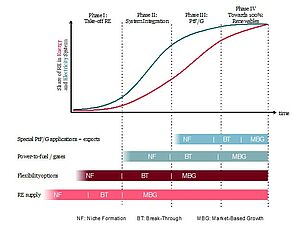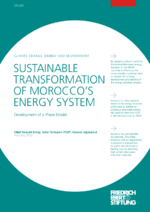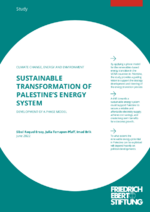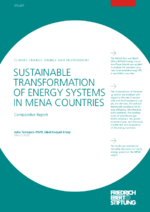Sustainable Transformation of Energy Systems in the MENA Region
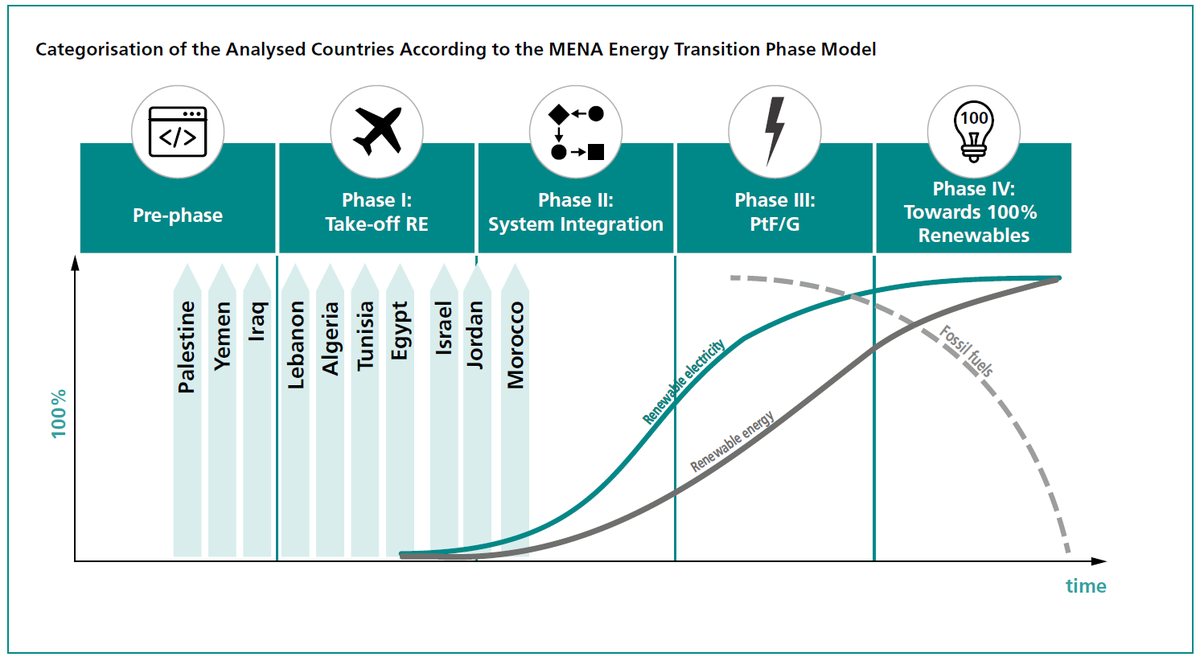
The Middle East and North Africa (MENA) region faces a wide array of challenges, including rapidly growing population, slowing economic growth, high rates of unemployment, and significant environmental pressures. These challenges are intensified by global and regional issues, such as climate change and regional tensions. In addition, the global coronavirus disease 2019 (Covid-19) pandemic has exacerbated economic challenges and has created new social vulnerabilities.
Although the region is a major energy producer, many of the MENA countries are struggling to meet growing domestic energy demand due to population growth, changing consumer behaviour, increasing urbanisation, and other factors – including industrialisation, water desalination, and the increased use of electricity for cooling, which is why renewable energy is gaining attention in the MENA region.
The significant potential in the MENA region for renewable energy production, in particular wind and solar power, creates an opportunity both to produce electricity that is almost CO2 neutral and to boost economic prosperity.
A transition towards a renewables-based energy system involves large-scale deployment of renewable energy technology, the development of enabling infrastructure, the implementation of appropriate regulatory frameworks, and the creation of new markets and industries.
Therefore, a clear understanding of socio-technical interdependencies in the energy system and the principal dynamics of system innovation is crucial. As a result, a phase model for renewables-based energy transitions in the MENA countries has been developed. This model structures the transition process over time through a set of transition phases. The phases are defined according to the main elements and processes shaping each phase, and the qualitative differences between phases are highlighted.
The four phases of the models correlate with the main assumptions deduced from the fundamental characteristics of renewable energy sources, labelled as follows: ‘Take-off Renewable Energies (RE)’, ‘System Integration’, ‘Power-to-Fuel/Gas (PtF/G)’, and ‘Towards 100% Renewables’.
Application of the Phase Model to MENA Countries
The MENA phase model for sustainable transformation has been applied to ten countries of the region, namely: Algeria, Egypt, Iraq, Israel, Jordan, Lebanon, Morocco, Palestine, Tunisia, and Yemen. The current state of development in each country was assessed and analysed against the phase model. Expert interviews were conducted to gain insights to specify the previously defined abstract components of the model, with further steps for the energy transition (based on the steps of the phase model) proposed. The application of the model is based on findings from previous studies and projects conducted in the MENA region, with specific case study data being collected and analysed by local partners specialized in the field at each country.
Collectively, a comparative report was also prepared where it synthesizes the results of the studies conducted and recommends steps for the MENA regions’ transitioning sustainably towards 100% renewables.
Publications
Ersoy, Sibel Raquel; Terrapon-Pfaff, Julia; Agouzoul, Hassan
Sustainable transformation of Marocco's energy system
Rabat, 2022
Download publication (900 KB, PDF-File)
Ersoy, Sibel Raquel; Terrapon-Pfaff, Julia; Brik, Imad
Sustainable transformation of Palestine's energy system
Jerusalem, 2022
Download publication (740 KB, PDF-File)
Terrapon-Pfaff, Julia; Ersoy, Sibel Raquel
Sustainable transformation of energy systems in MENA Countries
Amman, 2022
Download publication (450 KB, PDF-File)
